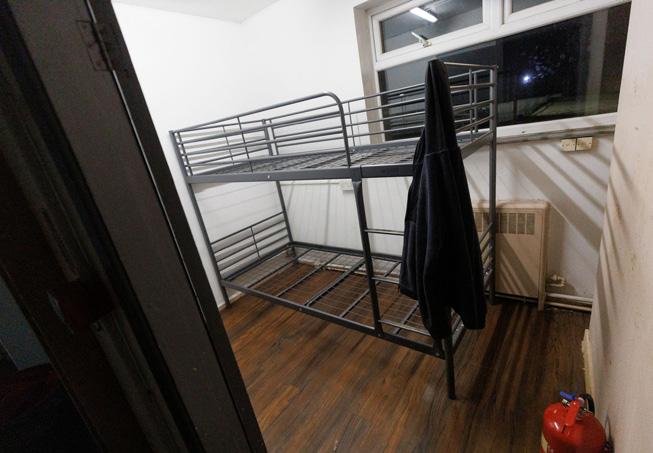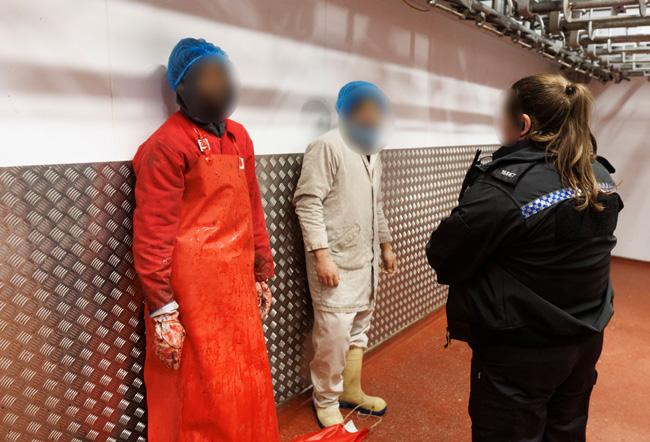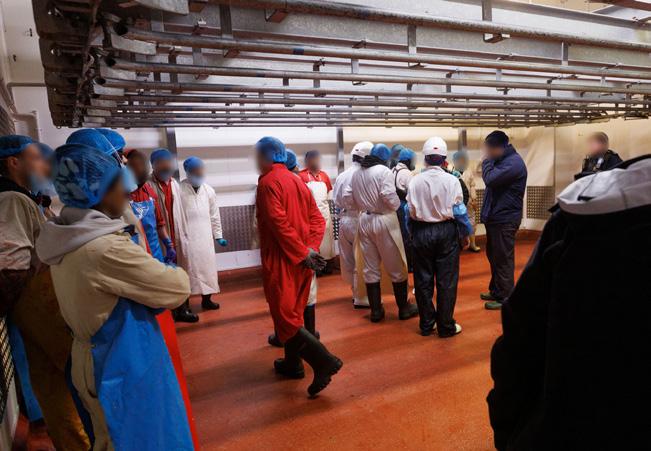




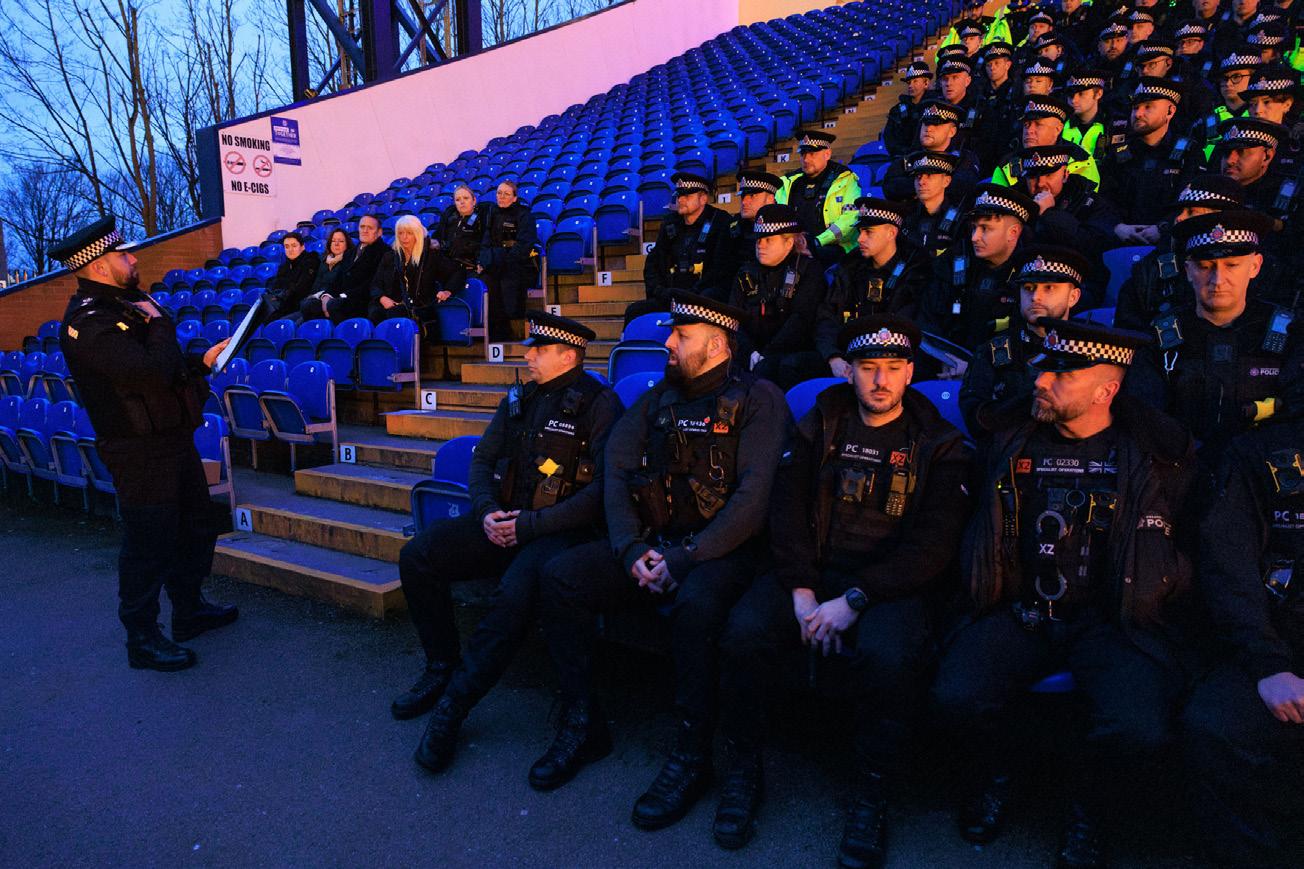
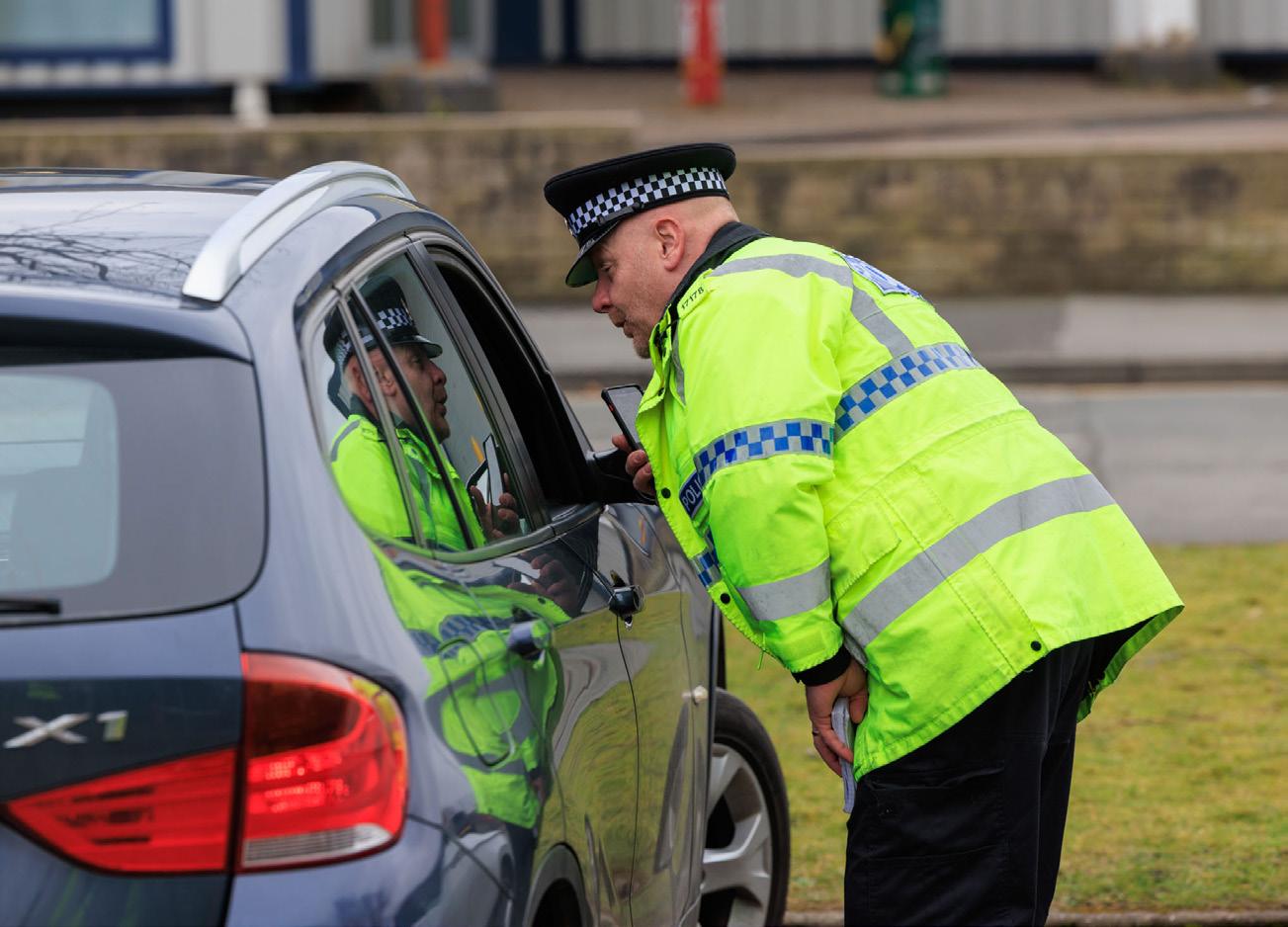
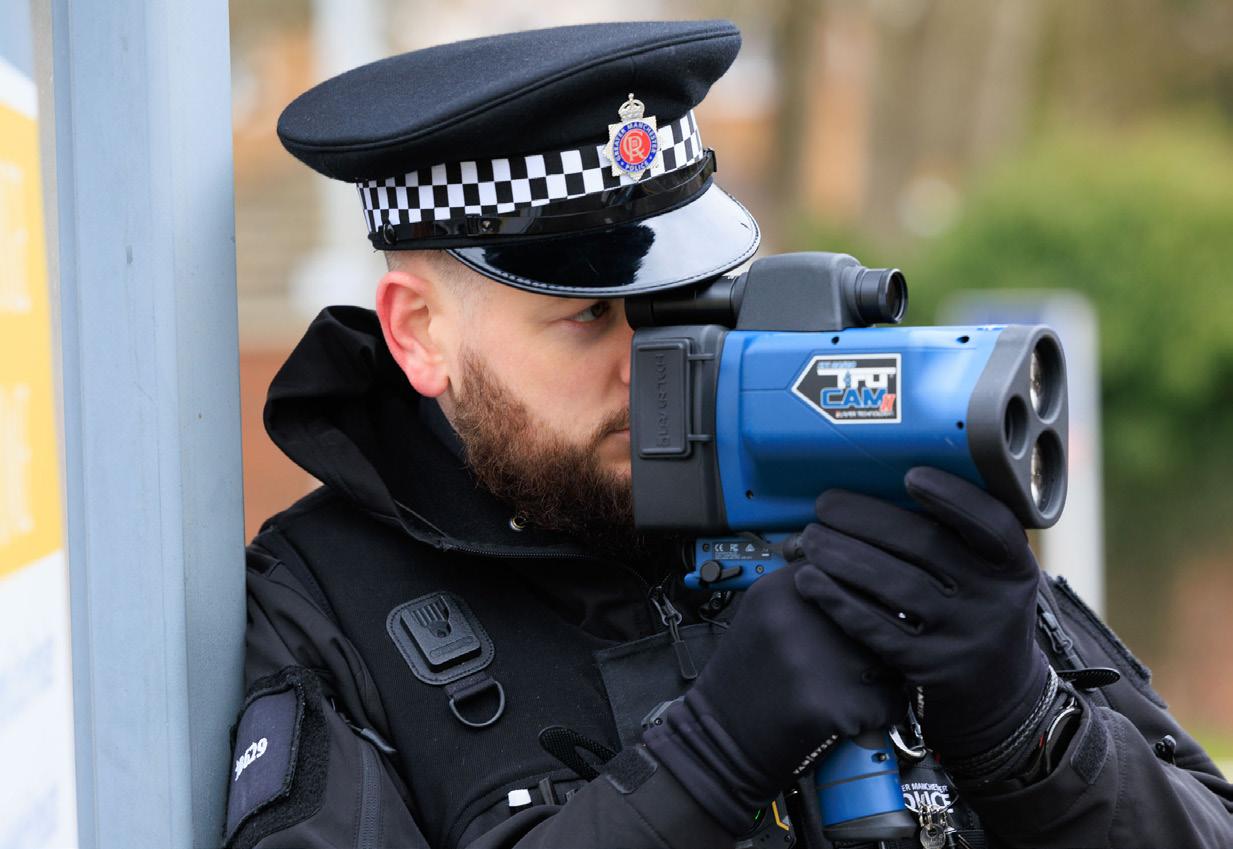
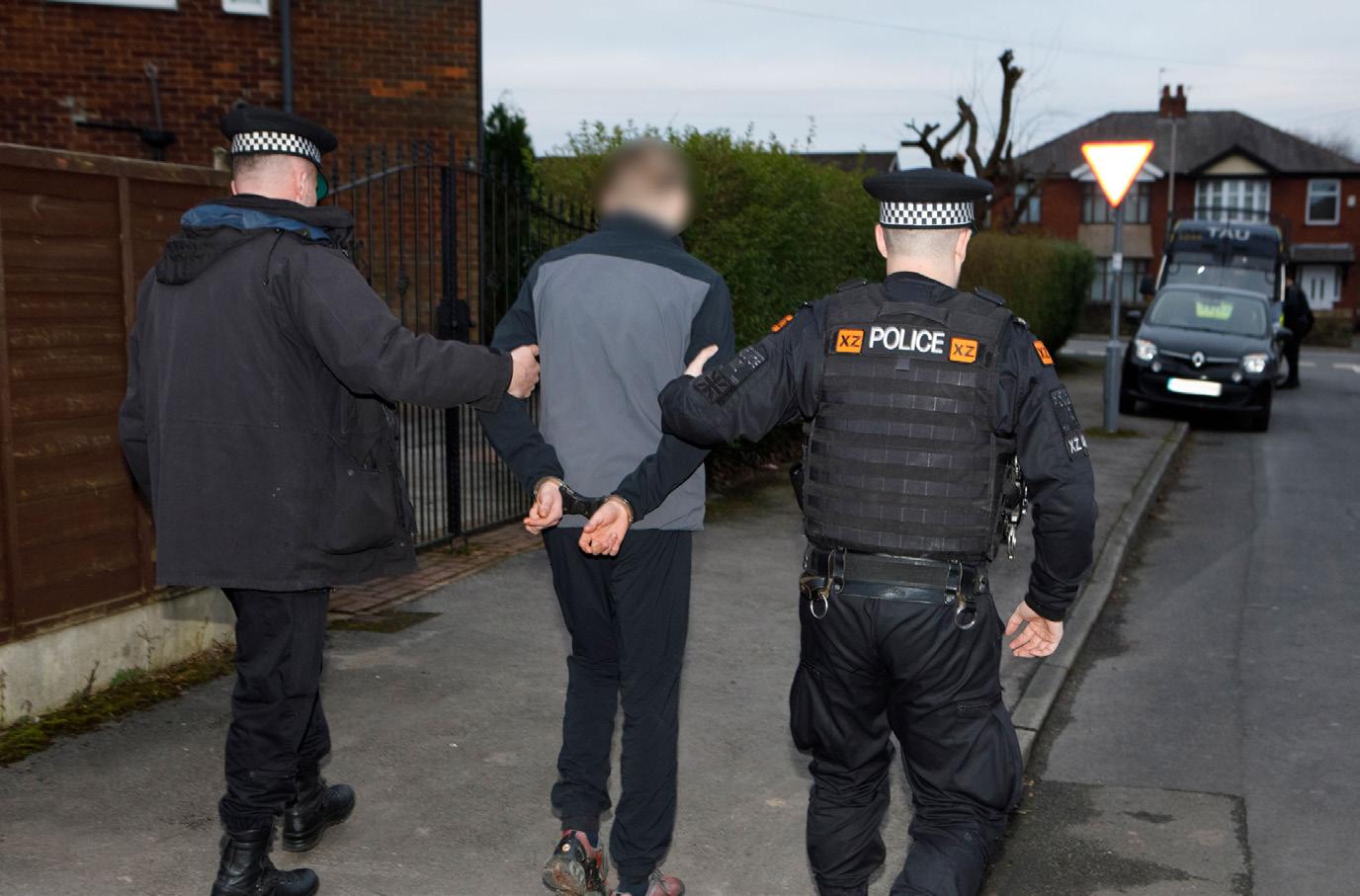
This month Operation AVRO returned to the streets of Stockport during which a total of 65 arrests were made for a range of offences from drug supply to burglary.
The day of action – which is the third to take place in Stockport – brought together resources from across the force as part of our commitment to taking the fight back to the criminals.
on community engagement to address the public’s concerns and what matters most to them, from knife crime to neighbourhood crime.
One purpose of this month’s District Brief is to place a focus on the Major Incident Team (MIT) - the team that can support districts from the very beginning of an incident.
The purpose of the MIT is to effectively deal with large or protracted investigations so major crime incidents do not adversely affect local policing teams, as well as providing investigative support to districts dealing with local serious crime.
Investigations of this type can require a huge number of resources such as round-the-clock monitoring of scenes, numerous pieces of forensic information as well as analysis, which MIT are able to provide and see investigations through to their conclusion.
This can help reduce pressure on district teams as MIT can handle the resource-intensive tasks such as interview strategies, evidence collation and forensic analysis.
This means that local officers on districts can focus on maintaining community relationships which may have been affected by serious incidents of this nature, as well as addressing further district priorities.
Furthermore, their experience in managing major incidents can help ensure cases are handled with precision and therefore, potentially increase the likelihood of securing convictions and delivering justice.
The contribution of MIT also helps to reinforce public trust in policing and is a fantastic demonstration of the importance of collaboration and expertise in solving complex crime.
10 warrants were conducted across the district, with the first taking place around 6am and by the time clocks struck mid-morning, a number of people were already in custody.
It was then on to the briefing at Stockport County Football Club, where Chief Superintendent Lewis Hughes provided a rousing briefing directed at officers, staff, and partners.
There was a strong emphasis on roads policing and road safety with 145 vehicles being stopped by officers throughout the course of the operation.
In addition, officers issued 55 traffic offence reports from which three vehicles were subsequently seized.
In Cheadle Hulme, officers brought down the door of a property which was found to be housing mature cannabis plants with an estimated street value of around £300,000.
A key focus throughout the day was
As part of the engagement activity, officers held events within our local communities, including a knife crime input to students at St Anne’s Voluntary Academy in Heaton Chapel and the Mounted Unit was out patrolling Stockport town centre to keep shoppers safe.
Neighbourhood officers ran a series of crime prevention and personal safety information stalls, which attracted interest amongst the local community.
In the town centre, officers worked in partnership with B&Q to provide traders and shoppers with SelectaDNA kits to help protect their property from theft.
Chief Superintendent Lewis Hughes said: “The day’s results showcased the extensive planning and dedication of everyone involved. They also highlighted our commitment to disrupting criminal activity and holding accountable those who cause harm.
“I would like to take this opportunity to thank the numerous teams from across the force that worked together and went above and beyond to ensure the day was a success.”
Another great result for the force.
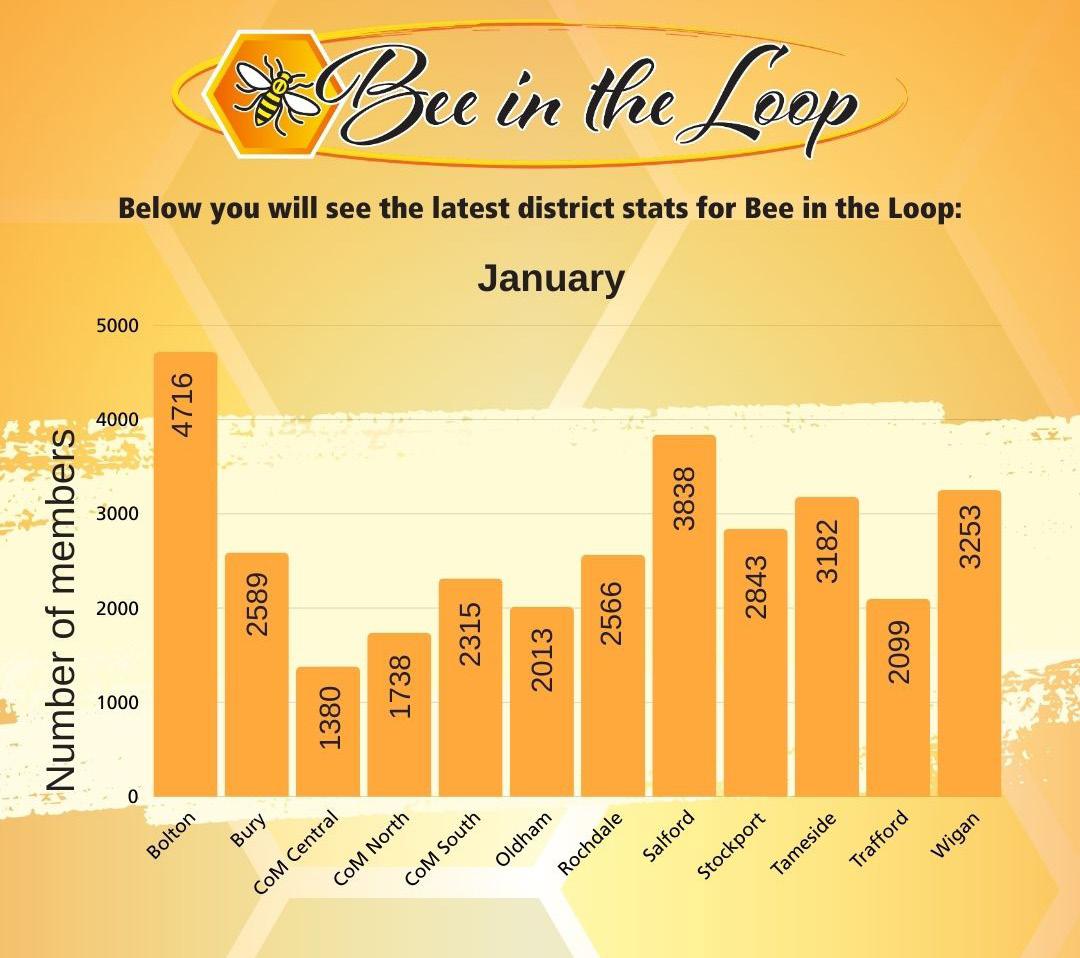
The BBC joined us in the city centre one evening in January, to see how GMP and the hospitality industry are safeguarding young people through increased engagement, education and test purchasing.
Over the course of the evening, we conducted several test purchases at various hotels across the city centre to see how they handled situations of potential exploitation in their hotel. Using a plain clothes officer as a suspect and a volunteer posing as an underage victim, we attempted to book a hotel room to see if the staff could spot signs of child sexual exploitation and take action to safeguard young people.
Overall, we could see that the majority of hotels had a good understanding of child exploitation, as a result of Operation Makesafe training; they challenged the test purchasers and refused to sell them a room before calling the police to report their concerns.
In one instance, employees failed to challenge the test purchasers or report suspicious activity to the police. A full debrief was conducted after this, and further training will be required to help them identify signs of child exploitation and understand the impact that allowing people to book a hotel room in suspicious circumstances can have.
The aim of the operation is to empower hoteliers and employees to feel confident in spotting the signs of potential exploitation happening in front of them and reporting it to the police so that we can act. These operations also help us to understand where there are gaps in the knowledge and training of hotel staff so that we can address these to ensure young people are kept as safe as possible.
Chief Superintendent David Meeney, District Commander for Manchester, said: “It is vital that we raise awareness amongst key local businesses as well as members of the public so they
can learn what to look out for, spot the signs, and ultimately help safeguard young people. Sometimes there may be a perfectly innocent explanation for a situation, but if we can protect even one vulnerable young person from harm, this initiative will have been worthwhile.”
Indicators of child sexual exploitation within the hospitality sector include, but are not limited to:
• Adults who appear secretive about their visit or try to conceal that they are visiting in the company of a child or young person.
• Arrival of young person with a boyfriend/girlfriend who appears older than they are.
• Refusal to provide identification or credit card details and attempting to pay in cash.
• Requesting an isolated room, a room close to a fire exit or a room with easy access to the car park.
• High levels of visitors to a guest room.
• Visitors arriving and asking for a specific room number without knowing the name the room is booked under.
• Refusal to have room cleaned or visited.
• Pre-paid bar tab or consumption of pornographic film channels in a room occupied by a child or young person.

As part of our ongoing drive to improve the way we engage with vulnerable victims and witnesses, including children, GMP will shortly launch a new process for arranging and conducting video interviews with children and vulnerable adults.
Ahead of the rollout of the new process, training sessions will be provided for anyone whose role involves dealing with victims and witnesses, including response, DIT, CID and CPIU.
The training will take place between Monday 10 and Friday 14 February, with sessions on each day from 10am to 11am and from 2pm to 3pm.
Each session will take around an hour, with training followed by a Q and A; the training will count towards continuous professional development (CPD) hours for detectives.
You can view a full list of links to each training session by scanning the QR code below.


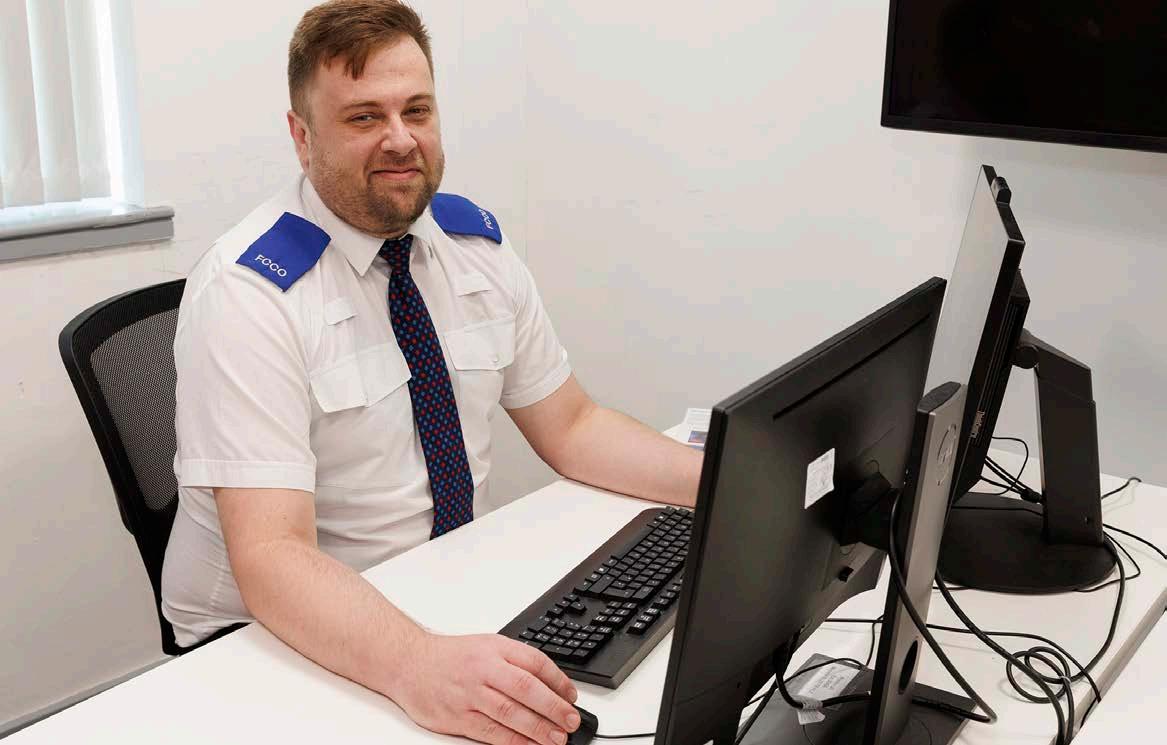
As Right Care, Right Person (RCRP) moves into its second wave, we spoke with Bradley Sone, a call handler at Claytonbrook FCCO, about the implementation of the initiative and its progress so far.
How do you feel about RCRP so far?
So far the introduction of RCRP in GMP has had a huge impact. There was a lot of worrying prior to launch, but the whole team seems to be on board now making sure the callers are directed to the most appropriate agency to help them. As a force we have had a drop in deployments to concern for welfare calls, freeing up patrols to go to other incidents; there has also been a drop in the number of concern for welfare jobs received from partner agencies, which are now more likely to contact the more appropriate agency as their first point of call.
What aspects have been positive for you?
For me the most positive aspect of RCRP is getting the caller the help they need. For so long the police have attended everything to try and help as best they can, but with this new process now in place the people of Greater Manchester can get the right help that they need.
What challenges have you encountered with RCRP since it was implemented?
My team specifically struggled with the changes to the missing persons policy [Operation Addition] rather than RCRP itself –they were both big changes to two big parts of call handling, and the missing policy change seemed to not be shouted about as much.
How did you overcome these challenges? Who or what helped you?
We communicated any challenges we encountered to the RCRP senior leadership team (SLT) and the subject matter experts (SMEs) in the room, who made amendments to the policy where appropriate and communicated changes so the new information could be filtered down. Throughout the whole implementation of RCRP there has been a lot of help and support available from the SLT and the SMEs.
How do you think the public feels about RCRP?
Members of the general public who I have spoken to or assisted with jobs all seemed happy with the change; a lot of the time on calls I have found that people were just unaware of who else they could call so they called the police, but when we pass on advice for who else to contact, they are happy to follow it.
What do you hope to gain from RCRP in the future?
By continuing with RCRP, we can continue to get the people of Greater Manchester the right help. As a result of fewer deployments for concern for welfare calls, we can attend more jobs in a given timeframe.
Are there any specific improvements or outcomes you are looking forward to?
The policy continues to be updated as we continue working with RCRP. The changes so far have all been appropriate, they haven’t added any extra work to the control room, and the room as a whole is more confident with RCRP. I cannot think of any specific improvements needed at this time.
GMP’s Association of Women in Policing (AWP) will be holding an International Women’s Day event on Friday 7 March 2025 at GMP Force Headquarters.
The event, which will take place in room 515 of FHQ from 9am to 3pm, will be opened by ACC Steph Parker and feature presentations from:
• Police History Society chair and former senior Metropolitan Police officer Kate Halpin QPM on the diverse history of women in policing
• Renowned academic Dr Sajjan Gohel on the role of misogyny in the ideologies that drive terrorism
• GMP Det Insp Hayley Riley and Ch Supt Colin McFarlane on the importance of workplace mentoring and female representation at the board level
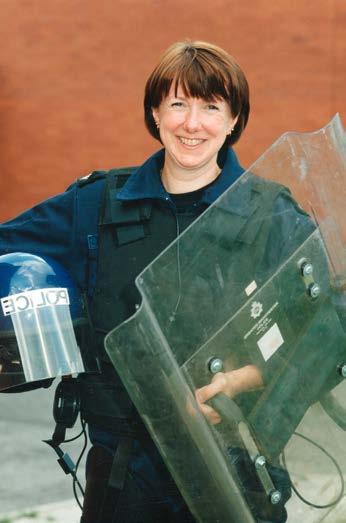
• GMP leadership trainer Rebekah Renshaw on professional development within policing
• Ruth O’Malley, head of data science at Counter-Terrorism Policing, on the value of police staff in complex investigations
Attendees will be able to visit stalls for support networks and bodies both within and outside GMP, and network with female colleagues from across the force. Food will be provided, with vegan and halal options available.
If you’re interested in attending the event, please email AWP@gmp.police. uk with your rank and division.
There are only 50 places available at the event, so get in touch as soon as you can!





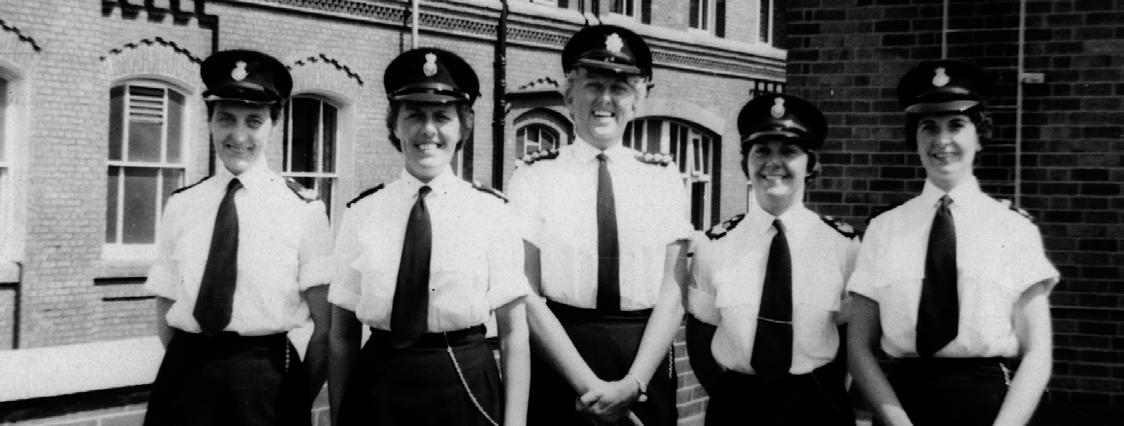
A new statutory Victims’ Code is now in effect, placing mandatory requirements on all police forces and criminal justice partners to provide consistent, high-quality support to victims throughout their journey through the criminal justice system.
In order to help embed the Code into GMP practice at all levels, for both police officers and staff, ACC John Webster (Criminal Justice and Custody) and Victims’ Services strategic lead Louise Sever have put together a video that provides a high-level overview of what the changes mean for us as a force (scroll down to access the video).
ACC Webster said: “These changes represent a major step forward in how we support victims of crime.
The new Code puts clear obligations on us to provide better information, support and communication to victims, while working more closely with our partner agencies.
“Every contact with a victim is an
opportunity to build trust and confidence in policing.
These new requirements will help ensure we provide consistent, professional support to every victim we encounter.
Remember, supporting victims effectively isn’t just about following a code – it’s about providing the professional, empathetic service that victims deserve and that builds public confidence in policing.”
Key changes which officers and staff should be aware of include:
• A broader definition of ‘victim’ that includes those who have witnessed crime, those whose birth resulted from criminal conduct, those who have lost a close family member to crime, and children who are victims of domestic abuse.
• Mandatory compliance with the Victims’ Code, requiring us to provide specific services unless there are good reasons not to.
• New requirements to collect and share data about victim services with other criminal justice agencies.
• Specific obligations around notifying schools when we believe a child may be a victim of domestic abuse.
• Enhanced information sharing framework with clear guidelines on handling victim information.
You can view the video by scanning the QR code below.

The post-incident procedure (PIP) is a national process designed to guide GMP officers and staff who have witnessed or been involved with a death or serious injury (DSI) of persons following police intervention or contact, where there is no suggestion of misconduct or wrongdoing on behalf of the GMP employees involved.
The procedure is in place both to enable officers and staff to provide any independent inquiry with the best evidence that they can and to ensure that the welfare of any GMP officers or staff members involved in an incident of this kind is prioritised at all stages of the process. It has welfare at its core and offers an element of protection
to officers who have often acted with nothing but courage and professionalism in extremely challenging circumstance.
All GMP officers and staff should ensure they are aware of the PIP and how it works – DSI incidents could affect anyone, public-facing or otherwise, and irrespective of their role or rank.
Our Creative Media Imaging team has produced an informative video covering the key aspects of the PIP, to give you an element of confidence in the process in case you are ever involved in an incident in which a member of the public has either been killed or seriously injured.
You can watch it by scanning the QR code to the right.
Please be aware that the video contains graphic footage which some viewers may find upsetting or distressing.


The latest season of Channel 4’s behind-the-scenes documentary series Manhunt, which aired through January, focuses on teams at GMP as they investigate a series of cases.
The programme, which has been described as ‘absorbing…a low-key tribute to diligent police work’ by the i and ‘gripping’ by the Daily Mail, follows the progress of Operations Feverfew (investigating the February 2022 kidnap and murder of Christopher Hughes), Southsea (the hunt for the killers of Neri Morse, who was stabbed in Ancoats in November 2022) and Bure, which sees officers respond to intelligence that a man is planning to attend a large public event with a gun.
Op Feverfew, the subject of the first


episode of the series, is the complex investigation into the kidnap and murder of Christopher Hughes in February 2022. The documentary crew follows the work of DI Justin Bryant and his team at GMP’s Serious and Organised Crime Group following an initial 999 call reporting a man being forced into a car in Wigan, as they piece together evidence and deploy resources to locate Christopher and his abductors. Once a body is found, the missing persons case becomes a murder investigation; and the team must uncover what happened – and why.
The second episode follows Operation Southsea, which sees the Major Incident Team spring into action when a stabbing on a busy street in broad daylight leaves
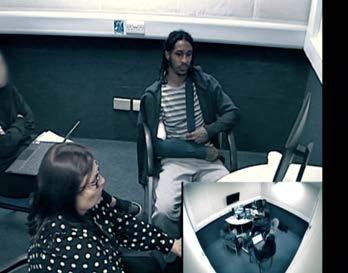

24-year-old Neri Morse dead and three suspects nowhere to be found. The team calls in specialist intelligence officers to track the fugitives before they strike again.
The third and final episode focuses on Operation Bure, an investigation into intelligence that a man was planning to attend an event with a gun. In the space of only a few hours, officers must respond proactively and dynamically to locate the potential offender and mitigate any threat he poses to the public.
Every episode of Manhunt is now available to stream at https://www. channel4.com/programmes/manhuntdocumentary.


GMP’s ongoing evidential property management (EPM) streamlining project was introduced to support with the reduction of serious risks to the retention and accessibility of evidential property across the force. One key area of focus is the significant volumes of destruction backlogs being held across the force, with around 44,000 evidential holdings currently awaiting further action or disposal. Backlogs like this significantly increase the risk to GMP, and therefore a key focus has been placed on streamlining and stabilising the EPM stores and their content.
Under the EPM ‘streamline and sustainability’ plan, a performance dashboard was created to support with the identification of high risk and priority areas within the evidence property management system, ensuring that the project team was dealing professionally



with the management of evidence, to safeguard its integrity in support of the prevention, reduction and detection of crime, keeping people safe, and caring for victims. Weekly SPOC meetings were introduced to share challenges, review ideas and ensure urgent actions were reviewed regularly.
These initial solutions will now be followed by a series of localised days of action, which will see some evidence storage facilities temporarily close for a few days to allow the project team, EPM store staff and divisional officers work collaboratively to reduce existing backlogs. On the first of these, a ‘proof of concept’ session at Oldham which began on Monday 27 January, the team was able to reduce the current backlogs from 3,595 destruction items to 633 over a three-day period.
Senior Change Project Manager Lisa Semple, who is overseeing the project,

said: “We’re already very pleased with these initial results, and we’re looking forward to further successes throughout the first half of 2025.
“The Oldham day of action follows on from a series of SPOC-led actions in 2024 which saw reductions in disposals of 60% at Longsight; 55% at West Didsbury; 47% reduction at Oldham and 43% at Wigan. Our overarching goal is to reduce the 44,000 holdings down to around 9,000 items.”
The days of action will be complemented by the introduction of proactive stock management practices aimed at preventing backlogs from building up again, including the introduction of standard operating procedures, store targets, daily performance meetings and a weekly Gold meeting to track store performance and identify early on any challenges which may pose a risk to backlog volumes.
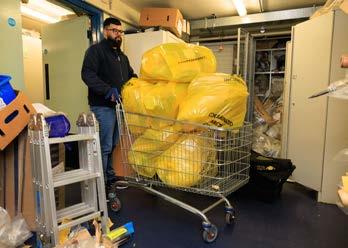
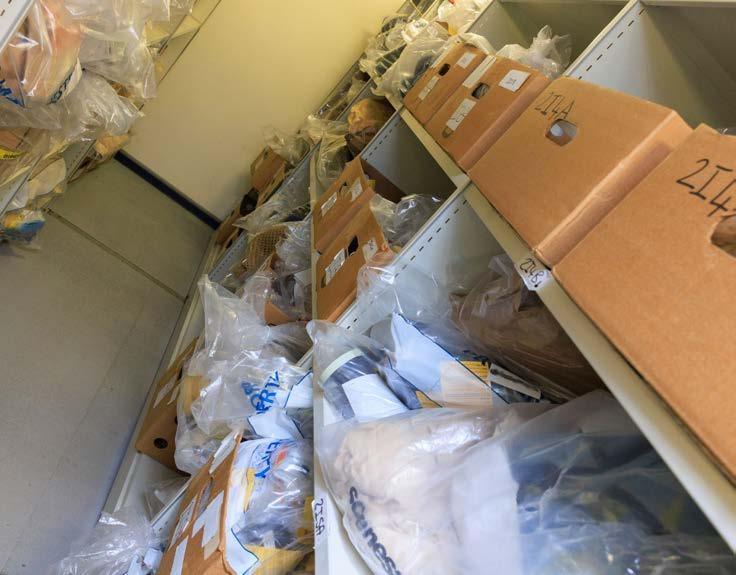

In late January, a GMP officer was seriously injured when a vehicle hit her at speed while she was investigating to a report of suspicious behaviour in Cheadle. A man has been arrested on suspicion of attempted murder.
Ch Insp John Picton of the Stockport district said: “This incident is truly shocking and shows how quickly situations our frontline officers attend can escalate. Our officers go to work every day to provide an outstanding service to the communities they serve, and achieve fantastic results in situations that are often challenging. Our investigation is continuing and the officer is being supported by all of us at the Stockport district; she is recovering well.”
From September 2018 to September 2023, the number of assaults on police constables in England and Wales rose from 28,668 to 42,424 incidents: an increase of 48 per cent. In the same period, assaults on officers resulting in injury increased by 14.8 per cent.
It’s important to remember that any assault or hate crime that happens to you while you are on duty is a serious matter. Being assaulted or abused at work is not normal; it’s not acceptable; and it is absolutely not just ‘part of the job’. Oscar Kilo’s Operation Hampshire aims to prioritise officer and staff wellbeing by ensuring that officers and staff who have been attacked are
taken seriously as victims and that the impact of every assault is considered, regardless of injury. It provides guidance, strategy and resources both for officers and staff who have been attacked while working, and for their supervisors and line managers.
Sometimes when we experience a traumatic event – such as being assaulted or subjected to a hate crime – the full impact of what has happened doesn’t hit us until days or weeks afterwards. The psychological effects of being attacked at work are often more insidious, and can last far longer, than the physical injuries. Different people experience and respond to trauma in very different ways and with varying levels of resilience, formed by their own individual experiences; and there is no right or wrong way to experience trauma.
GMP recognises that the wellbeing of our officers and staff is paramount to maintaining a strong, effective police force, and we want to ensure that every officer or member of staff who is attacked while at work is treated like any other victim of a crime – that they have meaningful support, regular contact from the team investigating their case, and that the support that they receive has oversight at a senior level. Operation Hampshire is a national initiative offering the necessary strategy and guidance to help forces respond effectively to assaults on police officers
and staff, enabling us to get the basics right for our colleagues when they need us most.
At the heart of Operation Hampshire is a seven-point charter that continues to guide our approach:
1. Assaults on police officers and staff should be investigated with the same care, compassion and commitment as an assault on a member of the public.
2. The Victims’ Code of Practice (VCoP) applies to all victims of crime, including police officers and staff.
3. The assaulted officer must never be the officer in charge (OIC) for the investigation into their own assault.
4. Victims recover better and more quickly if they receive appropriate support.
5. The supervisor must ensure that the district commander or head of department is informed to provide continuity of welfare support.
6. The victim of the assault and/or the line manager should ensure that Form 700B is completed as soon as possible after the event and sent to the Health and Safety Unit.
7. To achieve a successful prosecution, the best evidence should be provided.
You can learn more about Op Hampshire, including information and resources for victims of crime, their supervisors and SLTs, on our dedicated intranet hub at Home > Operational support > Operation Hampshire.
On 25 November 2024 Kathleen Cotton, widow of former GMP sergeant Alan Cotton, celebrated her 100th birthday. To celebrate the occasion, Kathleen was visited by chair of the Manchester branch of the National Association of Retired Police Officers (NARPO) Sandie Wilde and treasurer Maureen Graham, with flowers and a gift; as well as CoM Supt Simon Nasim, who brought a personally written card from GMP Chief Constable Stephen Watson QPM, who was unable to attend.
Sandie said: “Kathleen is still very active. She was a teacher at a local primary school, and while out and about she is still approached by former pupils who have now retired!”
Sgt Cotton, who served with GMP from around 1950 to around 1980 before going on to work in Eccles courts, is well remembered as a great character. During his policing career, he was the recipient of a bravery award for rescuing a man from one of the highest buildings in the city.
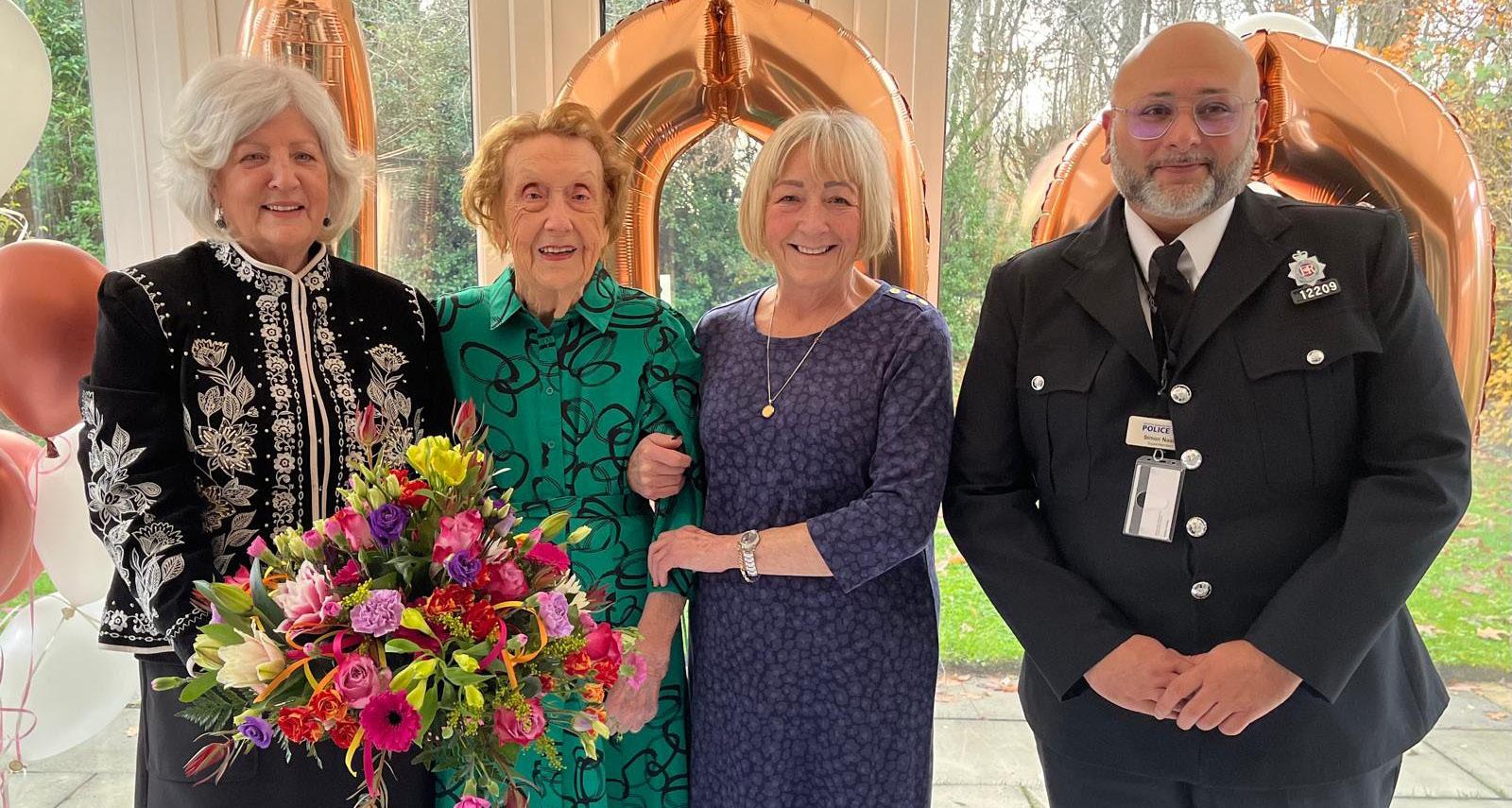


It was a busy end to the month for Stockport’s PCSOs. On Tuesday 28 January, they were called to guard a scene in Cheadle following the execution of a warrant, whereby three males were subsequently arrested for cultivation of cannabis.
On Wednesday 29 January, officers were out and about in the Brinnington and Lancashire Hill area of the district, when they were tasked with assisting and locating a wanted male.
Despite their best efforts, the offender evaded arrest until later that evening,
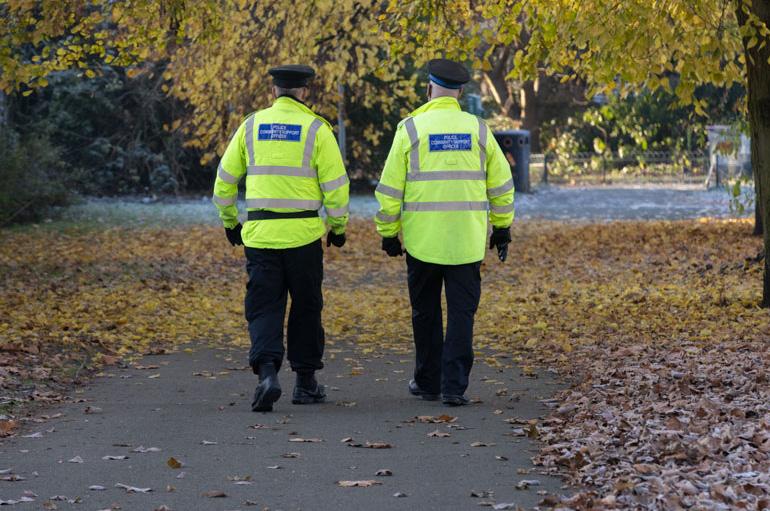
when Stockport’s response team apprehended him.
In the afternoon, PCSOs Aimee Toye and Simon Berry, visited the local food bank in Brinnington, where they spoke to and offered advice to members of the public.
On Thursday 30 January, officers were on foot patrol on Lancashire Hill gathering intelligence, when they were called to a report of anti-social behaviour involving youths targeting a property in the area by kicking the occupant’s door.
Enquiries were subsequently made
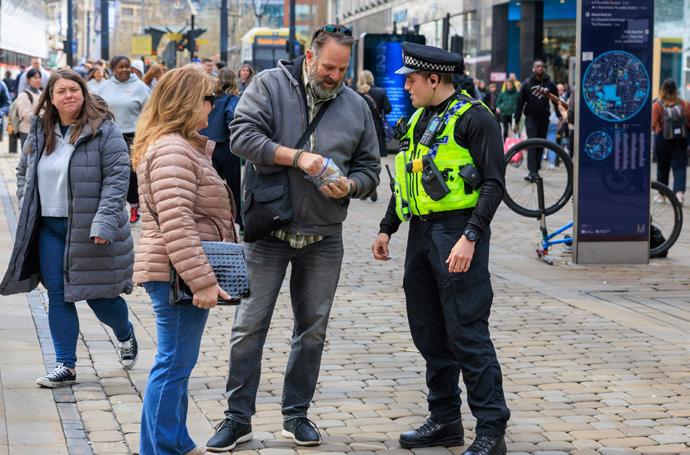
at local schools and work is currently ongoing to identify the youths involved.
A further incident occurred in Ludlow Towers, Brinnington with reports of youths causing issues in the stairwells and foyer area.
Enquiries were made at made at local schools and shops, and work continues to identify the suspects.
Finally, PCSO Simon Berry was called to a local school where a crossbow bolt was found. This was subsequently collected and booked into property for destruction.
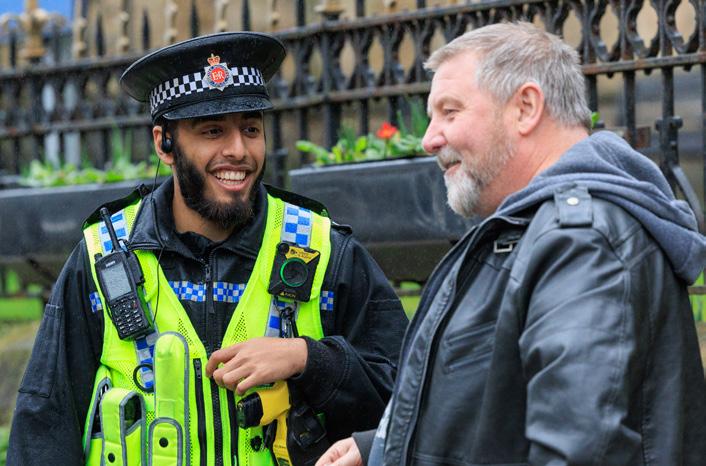
Officers from Stockport recently attested the latest cohort of Mini Police officers at Stockport County Football Club, where 12 children from Cheadle Catholic Junior School were invited to the stadium for a sneakpeak tour ahead of their attestation.
Following the tour, Chief Inspector Andrew Harty presented the children with their certificates after they confidently read aloud their promise to be the best Mini Police officers they could be.
As part of his speech CI Harty said: “I love the quote from Spiderman ‘with great power comes great responsibility’ because you must remember exactly that as a police officer. Your community trust that you will do the right thing as an officer, make the right choices and keep their loved ones safe. So in that sense we are all superheroes – including all of you who have spoken the promise today to always do your best and be role models in your school. People will look up to you in this role and will see the decisions you make, so always make sure you’re setting a good example because wearing this uniform comes with great responsibility – I trust you all will, and I’m sure your parents and
teachers do too.”
When asked why they had applied to be part of the Mini Police, the children gave a range of answers including “to be a role model to younger kids”, “to show people how to be kind”, “to help my community”, “to help the people around me, like my family and my friends”, “to be someone that other people look up to”.
One of the newly attested officers Charlie Gartside, warmed everyone’s hearts when he explained: “I wanted to join so I could be just like my grandad, he was a police officer for about 50 years.” And just like magic, Charlie’s Grandfather Bob Reddy was at the ceremony, watching his Grandson take his first move towards being a police officer and following in his footsteps.
Bob said: “I was a GMP officer for 30 years before retiring in 1996 on a Friday, I then came back to work as a member of staff on the following Monday and finally retired from policing for good in 2014.
“Seeing Charlie want to be involved in the Mini Police is fantastic and I’m really proud to be here today and see the positive impact GMP officers are making in the community.”

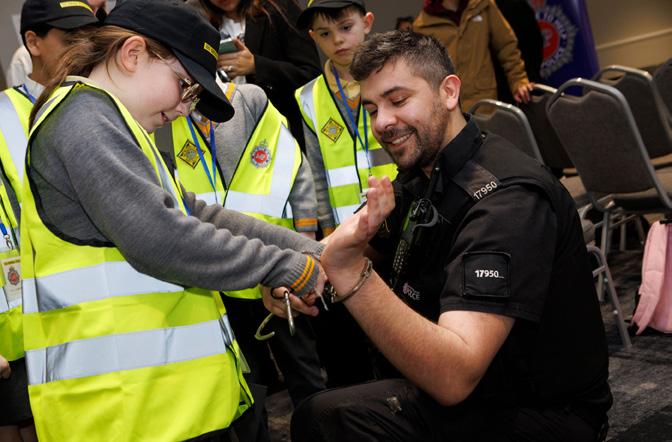
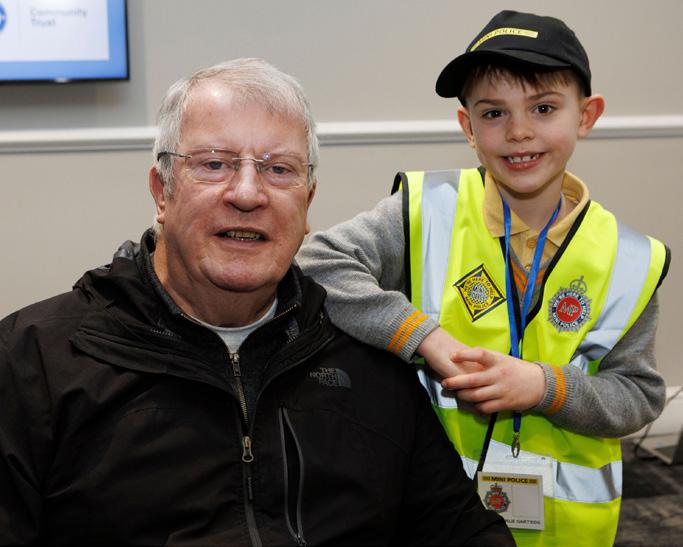
A man and a woman in their 30s were arrested for offences under the Modern Slavery Act as a result of two simultaneous warrants carried out following a concerning report alleging a man was being exploited for his labour.
Officers forced entry into an abattoir on Higher Bury Street on Thursday 30 January 2025, while a second warrant was executed simultaneously at a residential property on Merlin Road in Blackburn, Lancashire.
As a result of these warrants, a man and a woman – both in their thirties –were arrested on suspicion of human trafficking and an offence of slavery, servitude and forced or compulsory labour, contrary to S1 and S2 of The Modern Slavery Act.
A man also in his thirties was arrested at the abattoir after he tried to evade police, fleeing from the site and hiding on a nearby roof. Officers discovered he was an Albanian national living and working illegally in the UK. He is now being processed by Immigration Enforcement.
This operation took place after GMP
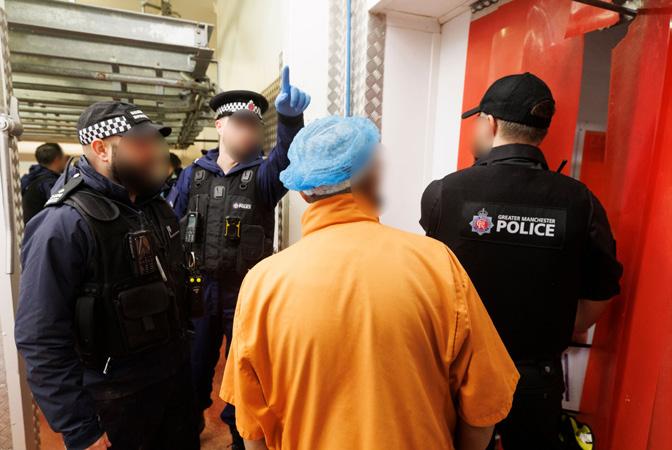
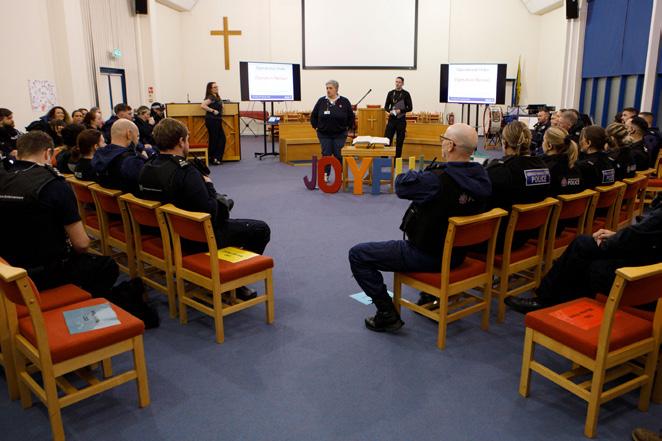

received disclosure alleging a man who previously worked at the abattoir was a victim of modern-day slavery.
The claims are that he was forced to live in the abattoir and work around the clock to pay off extortionate debts that were said to be associated with a sponsorship visa and travel expenses.
Detectives acted quickly, following lines of enquiry, gathering potential evidence, and coordinating a joint response with national agencies: the Gangmasters and Labour Abuse Authority (GLAA) and Home Office Border Security and Asylum. This also included the Salvation Army and Crime and Justice charity.
The team involved in the late-night raid interviewed 30 employees onsite with a keen eye for spotting signs of exploitation. Also seized was mobile phones, computer equipment and documentation, and the investigation continues.
Detective Sergeant Lee Attenborough from the Stockport Challenger Team said: “We hope this robust and coordinated action taken in response to a concerning report instils confidence


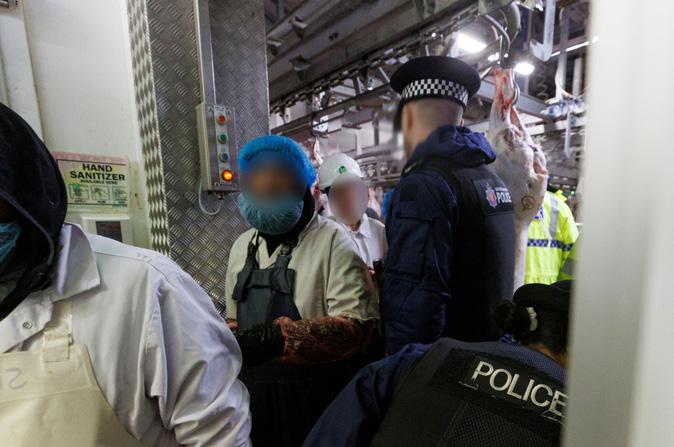
in our approach to tackling modern slavery head on.
“Officers spoke with every employee working within the abattoir last night, they were receptive to our presence, and we engaged in good discussions around their working conditions, payment, and terms of employment.
“It’s so important we do this with diligence and thankfully there were no further claims of exploitation.
“We have communicated the support that is available and how to access it should anyone choose to come forward.
“This activity forms one of several active modern slavery investigations within the force.
“In 2024 we supported more victims of modern slavery and held more offenders accountable for the misery they have caused.
“80 charges were laid – 40% more than the previous year – and 19 convictions were secured, up from seven, with several cases continuing to progress through the criminal justice system.”
Well done team!
